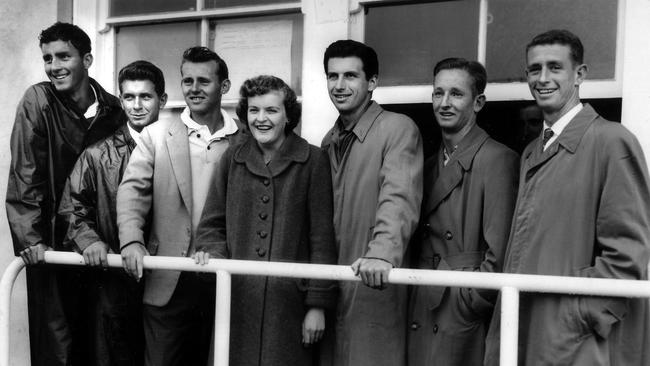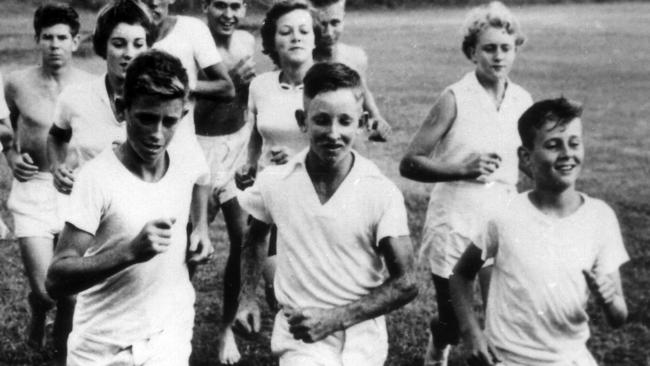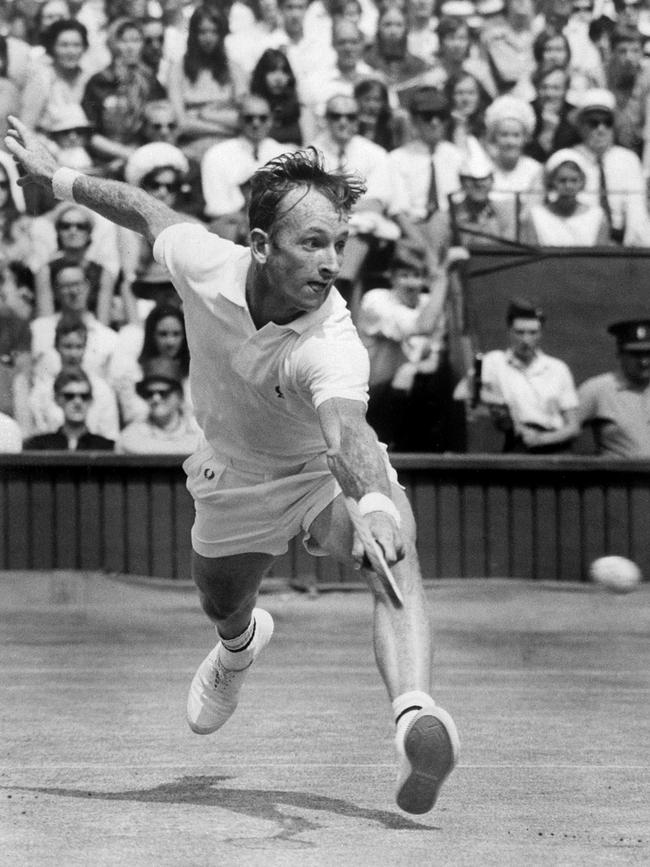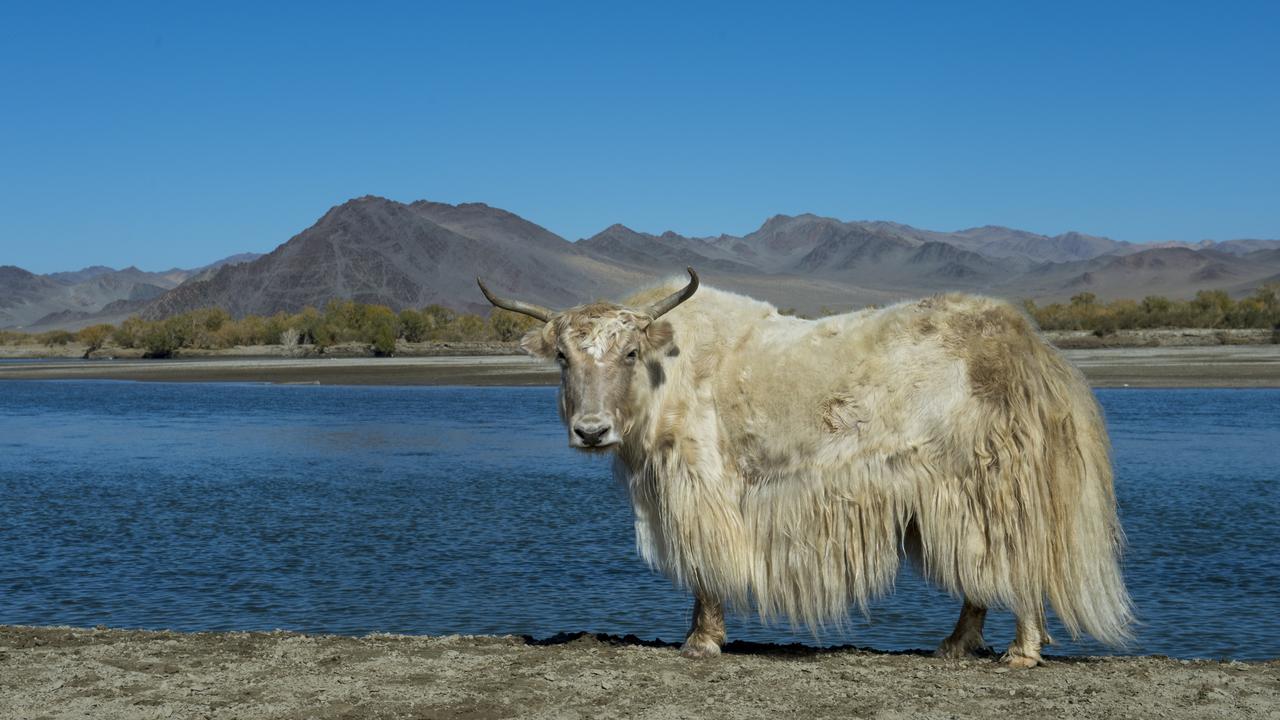Rod Laver’s great loss
A tragic accident deprived the world of a great tennis player, and Rocket a close mate.

At long last, in October 1960, all the Aussie touring tennis champs had arrived back home in Australia after seven months playing against the best in the world.
My mate Ken Fletcher, who had been left at home that year by the Lawn Tennis Association for throwing his racquet over a fence (he said it slipped from his grasp), was over the moon to see his good mates, Rod Laver and Frankie Gorman, finally back in Brisbane again.
Fletch had toured the world in 1959, aged 18, in the Australian Davis Cup squad when it won back the Davis Cup from the US. He’d had such a wondrous time that staying home with his ageing parents, Ethel and Norm, throughout 1960 was a bitter blow for the only child.
“Instead of going to Wimbledon in a chauffeur-driven limo with Gorman and Laver,” he told me with tears in his eyes, “I’m going to Coochiemudlo Island in dad’s vomit-green Mayflower.”
But now, Kenny would no longer be the only tennis champion in Brisbane catching public transport to work in town every day. Ken was employed by Slazenger, while Rod and Frankie worked nearby at the opposition racquet maker, Dunlop.
While Fletch was on the bus from Annerley, Laver caught the tram into town from Moorooka, where he lived with Jimmy Shepherd’s family, and Rod’s best mate, Frankie Gorman, was on the train down from Ipswich.
After work, the three mates once again could resume daily practice on the grass courts at Milton Tennis Centre.

Slazenger’s Brisbane manager, Nev Langford – a former Queensland singles champion – was jealous that Dunlop had two up-and-coming Wimbledon champions, while he had only the one, Fletch.
“There was nothing between Rod, and Frank and Ken,” Nev told me decades later.
“What surprised me was that the three of them gravitated towards each other – being deadly opponents, and working for different racquet companies. Players tended to mix with their company people back then.”
While newspapers described Fletch as “only a wisp of a lad”, they wrote that Frankie Gorman was “robust and durable”.
I thought Frankie was wire – like barbed wire. He was nearly a year older than Fletch and had a win over Laver – who was a year older.
When he was 15, Frankie Gorman not only beat Fletch to win the Queensland Under-16 title (Fletch had won the Under-15), but also then beat Laver to take the Under-17 championship, coming from behind. Frankie and Laver played doubles together, winning the national junior doubles title.
Terry Law, Lew Hoad’s cousin, worked at Dunlop in Brisbane at the time and played tennis most days with Frankie, Rod and Ken. He said Frankie was as much a joker as Rod was serious.
“Rod’s job was stringing racquets upstairs while Frankie and I sent off parcels from downstairs. Frankie would wait until Rod had three-quarters finished stringing a racquet and he would sneak up and put a knife through the strings – and Rod would have to start all over again.
“He did it time and time again. Rod was easygoing. Frankie was the strong man all the time. When we practised at Milton, Rod, I and everyone else played; Frankie was always the winner.”
Terry Law said when Rod got back from his first overseas tennis tour aged 18 he was such a nice bloke that he brought back three fancy beaded-leather Indian belts for Terry, Frankie and Fletch.
“We cross-examined Rod on what it was like overseas: but with Rod it was always like drawing teeth. However, Frankie was not one to give up easily.”
Frankie: “Now listen, Rod, did you meet any deliciously beautiful, irresistible women while you were travelling overseas for seven months?”
Laver: “Yes.”
Frankie: “Well, come on then, at least give us a name!”
Laver: “Kim.”
Frankie: “Ripper beauty bonzer, mate. What colour hair did she have?”
Laver: “Blonde.”
Frankie: “Hey, everyone, listen to this. Rocket met a blonde bombshell overseas! What did she do for a crust?”
Laver: “I think she was a movie star.”
Frankie: “A movie star! A movie star, everybody! What was her last name?”
Laver: “Novak.”
Frankie: “You mean you bloody met Kim Novak and you haven’t told us boys about it?”
Laver: “Yes.”
Nev Langford remembers Laver and Gorman “having equal tennis ability, if you dissected their game. Perhaps the only thing was that Rod was more on track and Frank liked a beer. Rod had his eyes fixed on Wimbledon, but Gorman was ‘If it happens, it happens’ ”.
Dot Deacon (nee Linde), a lifelong tennis coach who was ranked eight in Australia, was in the Hopman Squad in Brisbane with them all and remembered: “Frank was far more talented than Rod; there is no doubt in my mind. He was tall and could do anything with the tennis ball. He was more complete than Rod and was a real natural, with every shot in the manual.”
Former South African Davis Cup player Trevor Fancutt used to drive Rod and Frankie on tennis tours to play exhibitions all over the vast state of Queensland to promote Dunlop racquets and tennis balls … while Fletch toured separately for Slazenger.
“I drove, while Laver and Gorman sat in the back with a rifle each,” said Fancutt. “If they saw a dam, they would get me to pull up. The two boys would leap out, climb under the barb-wire fence, and crawl up the hill on their bellies to open fire on the ducks.”
On these long tours, Fancutt said, Frankie would beat Rod “most of the time”.
When I rang Rod at his home in the US in 2007, he recalled: “Frankie and I both worked at Dunlop and we enjoyed each other’s company. Because Frank had a lot of talent and great looks, he had a wonderful future. Frankie was just cruising into Davis Cup. We played Linton Cup together, and we stuck together.”
Rod described Frank as “a character!”.

“In the final of the Australian junior doubles, a high lob came my way but Frank yelled ‘Get out of the way’. So, I backed off. But instead of taking it on the full, Frank let the ball bounce … and even then he didn’t hit it. He let it fall towards the ground and when it was ankle high he turned and pointed at me and yelled ‘Yours!’.”
During a tournament in Sydney, Frankie and Kenny Fletcher were staying in a boarding house. Fletch went for a shower. He wrote to me: “Right in front of me was a sort … in the raw! I don’t know who got the biggest fright! Frankie said if it had been him, he’d be the cleanest boy in Sydney by now.”
In Melbourne, Ken and Frankie skipped tennis to go to the races at Moonee Valley. Ken wrote: “Hughie, you wouldn’t believe it. We both did our dough and didn’t even have enough left to catch the train home. It took us two hours to walk back to our hotel. Frankie told jokes all the way. It was a great afternoon.”
To see in the New Year at the end of 1960, Frankie, Kenny and Jimmy Shepherd (who often played the doubles with his lifelong mate Rod) hit Kings Cross together – they had plenty to celebrate. Frankie had become engaged to Jimmy’s gorgeous sister, Shirley, and Ken – rejected by the selectors that year – had defeated one of the chosen touring ones, Sydney’s Bob Hewitt, 6-0, 6-4.
Once again, the world was a place where young men could be handsome tennis champions, travel the world together like pirates, and eventually get married to a local girl and have children.
Then Frankie Gorman was killed.
Rod Laver recalled the details. “It was up past Nambour. Frankie was driving, coming over a bridge, and he missed a turn and veered off.
“It was a tragedy. His youngest brother, Vince, was also killed, and another brother, Tommy, was severely injured. It was one of those bad occasions.”
To remember one champion is to forget many.
Extracted by the author from his tennis book The Great Fletch (HarperCollins).


